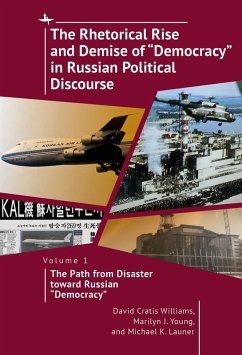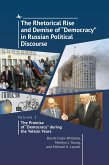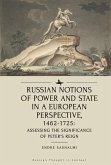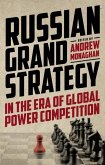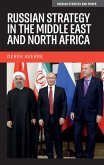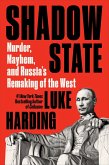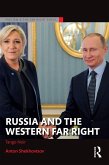The essays in this book examine the arguments and rhetoric used by the United States and the USSR following two catastrophes that impacted both countries, as blame is cast and consequences are debated. In this environment, it was perhaps inevitable that conspiracy theories would arise, especially about the downing of Korean Air Lines Flight 007 over the Sea of Japan. Those theories are examined, resulting in at least one method for addressing conspiracy arguments. In the case of Chernobyl, the disaster ruptured the "social compact" between the Soviet government and the people; efforts to overcome the resulting disillusionment quickly became the focus of state efforts.
Dieser Download kann aus rechtlichen Gründen nur mit Rechnungsadresse in A, D ausgeliefert werden.
Es gelten unsere Allgemeinen Geschäftsbedingungen: www.buecher.de/agb
Impressum
www.buecher.de ist ein Internetauftritt der buecher.de internetstores GmbH
Geschäftsführung: Monica Sawhney | Roland Kölbl | Günter Hilger
Sitz der Gesellschaft: Batheyer Straße 115 - 117, 58099 Hagen
Postanschrift: Bürgermeister-Wegele-Str. 12, 86167 Augsburg
Amtsgericht Hagen HRB 13257
Steuernummer: 321/5800/1497
USt-IdNr: DE450055826
Bitte wählen Sie Ihr Anliegen aus.
Rechnungen
Retourenschein anfordern
Bestellstatus
Storno

